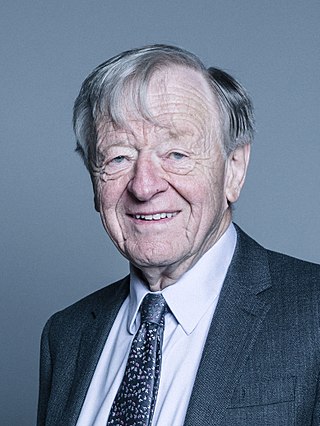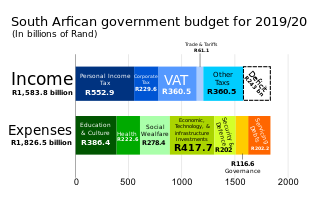History
The Act was passed in 1996; it received royal assent in July of that year, and was expected to be implemented in spring 1997. [3] However, it was not put into force before the 1997 general election. In 2000 the Home Office reported it was studying implementing the Act, [4] whilst in 2008 the Ministry of Justice announced that the complicated nature of the Act suggested it would cost an unreasonable amount to administer. [5]
The Conservative Party stated their intention to implement the Act in their manifesto for the 2010 general election, [6] and secured an agreement with the Liberal Democrats to make it part of their joint coalition agreement. [7] A statutory instrument dated 5 July specified 26 September 2011 as the commencement date for the Act. [1]
As implemented September 2011, the Act will result in a 40% pay cut for 500 prisoners, and is expected to raise up to £1m a year. [8]

Capital punishment in the United Kingdom predates the formation of the UK, having been used within the British Isles from ancient times until the second half of the 20th century. The last executions in the United Kingdom were by hanging, and took place in 1964; capital punishment for murder was suspended in 1965 and finally abolished in 1969. Although unused, the death penalty remained a legally defined punishment for certain offences such as treason until it was completely abolished in 1998; the last execution for treason took place in 1946. In 2004 the 13th Protocol to the European Convention on Human Rights became binding on the United Kingdom; it prohibits the restoration of the death penalty as long as the UK is a party to the convention.

A home zone is a living street as implemented in the United Kingdom, which are designed primarily to meet the needs of pedestrians, cyclists, children and residents and where the speeds and dominance of cars is reduced. Quiet lanes are a similar concept in rural areas.

National Insurance (NI) is a fundamental component of the welfare state in the United Kingdom. It acts as a form of social security, since payment of NI contributions establishes entitlement to certain state benefits for workers and their families.

Alun Edward Michael is a Welsh Labour and Co-operative politician serving as South Wales Police and Crime Commissioner since 2012. He served as Secretary of State for Wales from 1998 to 1999 and then as the first First Secretary of Wales and Leader of Welsh Labour from 1999 to 2000.
Jobseeker's Allowance (JSA) is an unemployment benefit paid by the Government of the United Kingdom to people who are unemployed and actively seeking work. It is part of the social security benefits system and is intended to cover living expenses while the claimant is out of work.

Alfred Dubs, Baron Dubs is a British Labour politician and former Member of Parliament.

The Children Act 1989 is an Act of Parliament of the United Kingdom that received royal assent on 16 November 1989 and came into substantial force across all three jurisdictions of the United Kingdom on 14 October 1991. In 1995, for the purposes of devolution, the Act was replaced by parallel legislation in Scotland and Northern Ireland. And in 2016, Part III of the Act was replaced in Wales.
IR35 is the United Kingdom's anti-avoidance tax legislation, the intermediaries legislation contained in Chapter 8 of Income Tax Act 2003. The legislation is designed to tax 'disguised' employment at a rate similar to employment. In this context, "disguised employees" means workers who receive payments from a client via an intermediary, i.e. their own limited company, and whose relationship with their client is such that had they been paid directly they would be employees of the client.

The Sexual Offences Act 1967 is an act of Parliament in the United Kingdom. It legalised homosexual acts in England and Wales, on the condition that they were consensual, in private and between two men who had attained the age of 21. The law was extended to Scotland by the Criminal Justice (Scotland) Act 1980 and to Northern Ireland by the Homosexual Offences Order 1982.
In the United Kingdom, confidence motions are a means of testing the support of the government (executive) in a legislative body, and for the legislature to remove the government from office. A confidence motion may take the form of either a vote of confidence, usually put forward by the government, or a vote of no confidence, usually proposed by the opposition. When such a motion is put to a vote in the legislature, if a vote of confidence is defeated, or a vote of no confidence is passed, then the incumbent government must resign, or call a general election.

The Parliamentary Voting System and Constituencies Act 2011(c. 1) is an Act of the Parliament of the United Kingdom that made provision for the holding of a referendum on whether to introduce the Alternative Vote system in all future general elections to the UK Parliament and also made provision on the number and size of parliamentary constituencies. The Bill for the Act was introduced to the House of Commons on 22 July 2010 and passed third reading on 2 November by 321 votes to 264. The House of Lords passed the Bill, with amendments, on 14 February 2011, and after some compromises between the two Houses on amendments, it received Royal Assent on 16 February 2011.
Taxes in Germany are levied by the federal government, the states (Länder) as well as the municipalities (Städte/Gemeinden). Many direct and indirect taxes exist in Germany; income tax and VAT are the most significant.

Taxation may involve payments to a minimum of two different levels of government: central government through SARS or to local government. Prior to 2001 the South African tax system was "source-based", where in income is taxed in the country where it originates. Since January 2001, the tax system was changed to "residence-based" wherein taxpayers residing in South Africa are taxed on their income irrespective of its source. Non residents are only subject to domestic taxes.
Since the creation of modern immigration controls in 1905, foreign nationals evading immigration control or committing crimes were regarded as a police matter and those people arrested were put before the courts whereupon they would be prosecuted and go through the deportation process. The United Kingdom Immigration Service's enforcement arm evolved gradually from the early 1970s onwards to meet demand from police for assistance in dealing with foreign national offenders and suspected immigration offenders within the UK. The wider history of UK immigration control is dealt with under UK immigration control - history.

The Succession to the Crown Act 2013 is an Act of the Parliament of the United Kingdom that altered the laws of succession to the British throne in accordance with the 2011 Perth Agreement. The Act replaced male-preference primogeniture with absolute primogeniture for those in the line of succession born after 28 October 2011, which means the eldest child, regardless of gender, precedes any siblings. The Act also repealed the Royal Marriages Act 1772, ended disqualification of a person who married a Roman Catholic from succession, and removed the requirement for those outside the first six persons in line to the throne to seek the Sovereign's approval to marry. It came into force on 26 March 2015, at the same time as the other Commonwealth realms implemented the Perth Agreement in their own laws.
Although some means of controlling foreign visitors to the United Kingdom existed before 1905, modern immigration border controls as now understood originated then. Although an Alien Act was passed in 1793 and remained in force to some extent or other until 1836, there were no controls between then and 1905 barring a very loosely policed system of registration on entry.

The European Union (Withdrawal) Act 2018 is an Act of the Parliament of the United Kingdom to repeal the European Communities Act 1972, and for parliamentary approval to be required for any withdrawal agreement negotiated between the Government of the United Kingdom and the European Union. Initially proposed as the Great Repeal Bill, its passage through both Houses of Parliament was completed on 20 June 2018 and it became law by Royal Assent on 26 June.
The European Union Withdrawal Agreement Bill 2017–19 was a private member's bill of the Parliament of the United Kingdom to make provision for the holding of a “public vote” (referendum) in the United Kingdom and Gibraltar following the conclusion of negotiations by Her Majesty's Government and the European Union on whether to support the proposed exit deal for the United Kingdom's withdrawal from the European Union or to remain a member state of the EU. The bill was sponsored by English Labour Co-operative MP Gareth Thomas. The bill failed upon the conclusion of the parliamentary session in November 2019, and withdrawal took place on 31 January 2020 without a second referendum.

The Housing Act 1969 is an act of Parliament in the United Kingdom that provided grants to home owners and landlords to improve the quality of their housing and to help finance local authorities to improve the quality of housing stock under their control.







